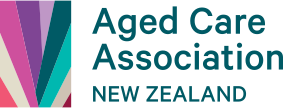Submissions
Submissions made by the ACA to Select Committees, Government Agencies
and other bodies, that relate to issues affecting the aged residential care sector.
January 2025: Aged Care Association submission to the Ministry for Regulation on the proposed Regulatory Standards Bill
The ACA opposes the proposed Regulatory Standards Bill, citing its restrictive parameters, omission of equity, and narrow cost-benefit focus that undermines public good. Concerns include risks to social and economic outcomes, potential legal challenges from corporations, and undemocratic processes bypassing public input. The Association highlights the lack of societal shifts justifying the Bill and calls for its discontinuation, emphasizing the need for equitable, participatory, and responsible regulatory design.
December 2024: Aged Care Association submission to Ministry of Health on the Mental Health Bill
The ACA welcomes the Mental Health Bill’s focus on equity and recovery but emphasises the need for tailored guidelines and funding for aged residential care (ARC). Key recommendations include mandatory training for ARC staff, clear protocols for managing compulsory care directives, enhanced communication with mental health services, funding adjustments for forensic patients, and maintaining current care plan review intervals. Strengthening partnerships and ensuring resident rights and safety are also prioritized.
December 2024: Aged Care Association submission to Te Waihanga | New Zealand Infrastructure Commission on the Discussion Document ‘Testing our Thinking: Developing an enduring National Infrastructure Plan’
The ACA submission to Te Waihanga emphasises the critical role of aged residential care (ARC) in New Zealand’s infrastructure. It highlights underfunding, workforce challenges, and insufficient bed availability. ACA advocates for an Aged Care Capital Assistance Programme, infrastructure investment through public-private partnerships, and culturally appropriate care for Māori. The submission urges integrating ARC into the National Infrastructure Plan to address aging population demands, reduce hospital pressures, and ensure sustainable care delivery.
November 2024: Aged Care Association submission to the Ministry of Health’s proposed topic for their Long-Term Insights Briefing – Unlocking the potential of active ageing
The ACA submission on the Long-Term Insights Briefing supports promoting “healthy ageing” over “active ageing” for inclusivity, focusing on wellbeing rather than workforce participation. We emphasise the complex needs of aged residential care (ARC) residents, often overlooked, and recommend fostering positive attitudes toward ageing in all settings. The ACA also advocates for investment in community housing, including ARC, and greater inclusion of older people in decision-making processes.
November 2024: Aged Care Association submission to the Disability Support Services Taskforce
The ACA submission to the Disability Support Services Taskforce calls for a separate, multi-year contract for Younger People with Disabilities (YPD) in aged care. It advocates for evidence-based pricing reflecting YPD needs, a split revenue model, and recognition of facilities as homes for YPD with access to specialist services. The ACA also recommends a holding charge for respite beds to ensure availability.
October 2024: Aged Care Association submission to Ministry of Health on the ‘Proposal to increase prescribing duration – Request for feedback’
The ACA supports the Ministry of Health’s proposal to increase prescription durations, believing it would benefit patients and reduce the administrative burden on healthcare professionals. However, the ACA also raises concerns about the potential financial impacts on general practices and pharmacies, and the need for clear guidelines on monitoring patient health under a longer prescription duration.
September 2024: Aged Care Association submission to Manatū Hauora | Ministry of Health on the review of the End of Life Choice Act 2019
The ACA’s submission on the End of Life Choice Act raises concerns about facilities not being equipped for assisted dying, the potential for resident pressure, and the need for safeguards. We call for better integration of palliative care and assisted dying, ensuring equal access regardless of choice, and criticize the six-week funding limit for palliative care as potentially pressuring individuals. The ACA also supports nurse practitioner rights, culturally appropriate processes, and support for staff and residents impacted by assisted dying.
September 2024: Aged Care Association submission to Tertiary Education Commission’s consultation on the ‘Redesign of the vocational education and training system’
This is the ACA’s submission to the Tertiary Education Commission (TEC) regarding the redesign of the vocational education and training system. The submission highlights the lack of New Zealand-specific training for internationally qualified care workers and advocates for industry-led standards-setting. The ACA recommends that Industry Training Boards (ITBs) encourage a competitive training market, addressing the complex needs of the aging population and attracting skilled workers.
September 2024: Oral submission to the Health Select Committee on the ‘Inquiry into the aged care sector’s current and future capacity to provide support services for people experiencing neurological cognitive disorders’
The ACA’s oral submission to the Health Select Committee on the Inquiry into the aged care sector’s capacity to support people with neurological cognitive disorders. Hon. Tracey Martin emphasises that while “aging in place” is a goal, current funding and delivery models fall short of meeting future needs. She stresses that the sector is underfunded and increasingly unsustainable, driven by outdated policies and the exclusion of key stakeholders from redesign discussions.
September 2024: Written submission to the Tertiary Education Commission’s consultation on the ‘Redesign of the vocational education and training system’
This is the ACA’s submission to the Tertiary Education Commission’s consultation on the ‘Redesign of the vocational education and training system’. The submission draws inputs from sector stakeholders including Careerforce NZ and BusinessNZ.
August 2024: Written submission to the Health Select Committee on the ‘Inquiry into the aged care sector’s current and future capacity to provide support services for people experiencing neurological cognitive disorders’
This is the ACA’s submission to the Health Select Committee, recommending a well-funded, dementia-friendly care continuum, improvements to assessment processes, and a co-designed care model that includes home, community, residential, and palliative care, with public-private partnerships to meet future needs.
July 2024: Written submission to the Health and Disability Commissioner on the Review of the HDC Act and Code 2024
This is the ACA’s submission to the Health and Disability Commissioner, responding to the proposed changes and questions raised in HDC’s public consultation document. The submission draws inputs from our membership and also the ACA Nursing Leadership Group (NLG), comprised of nursing leaders from the ARC sector.
June 2024: Written submission to Te Aka Matua o te Ture | Law Commission on the Review of Adult Decision-making Capacity Law: Second Issues Paper
This is the ACA’s submission to the Law Commission on the Second Issues Paper concerning the Review of Adult Decision-making Capacity Law. The submission draws inputs from our membership and also the ACA Nursing Leadership Group (NLG), comprised of nursing leaders from the ARC sector.
October 2023: Aged Care Association submission to the Royal Commission of Inquiry into Covid-19 Lessons Learned
The ACA’s submission to the Royal Commission of Inquiry into Covid-19 Lessons Learned highlights the need for greater support for aged residential care (ARC) in pandemic planning. It criticises inequities in PPE access, inappropriate IPC measures, and restrictive visitation policies. Recommendations include designating ACA as a national advisory body, involving ARC leaders in decisions, creating a national pandemic plan, ensuring equitable PPE access, consulting IPC experts, and implementing humane visitation policies.
December 2022: Submission to the Economic Development, Science and Innovation Committee on the Business Payment Practices Bill
This is the NZACA view on the Government’s attempt to hold large entities to account for their business practices.
November 2022: Submission to the Ministry of Business, Innovation, and Employment on the Future of the Skilled Migrant Category.
This is the NZACA view on MBIE’s proposed changes to the immigration Skilled Migrant Category.
May 2022: Submission to the Education and Workforce Committee on the Fair Pay Agreements Bill
This is the NZACA’s response to the Government’s Education and Workforce Committee on the Fair Pay Agreements Bill.
December 2021: Submission to the Productivity Commission’s paper “Immigration – Fit for the future: preliminary findings and recommendations”
This paper is the NZACA’s response to the Productivity Commission’s preliminary findings and recommendations in its inquiry in to New Zealand’s immigration settings.
November 2021: Submission to TAS on the 2022/2023 ARRC and ARHSS agreements
This paper highlights the key issues the NZACA would like to see addressed as we enter the upcoming negotiation process with District Health Boards (DHBs) and the Ministry of Health (MOH).
October 2021: Submission to the Productivity Commission’s Issues paper on Immigration, Productivity and Wellbeing
NZACA’s response to the Issues paper from the Productivity Commission on Immigration, Productivity and Wellbeing.
March 2021: Submission to the Commission for Financial Capability’s (CFFC) White Paper on the Retirement Villages’ Legislative Framework: Assessment and Options for Change 2020
NZACA’s response to the White Paper from the CFFC on the Retirement Villages’ Legislative Framework.
February 2021: Submission on the Reform of Vocational Education (RoVE).
NZACA’s submission on the Health, Community and Social Services Workforce Development Council (WDC) Order in Council proposals.
November 2020: Submission to TAS on the 2021/2022 ARRC and ARHSS agreements
This paper highlights the key issues the NZACA would like to see addressed as we enter the upcoming negotiation process with District Health Boards (DHBs) and the Ministry of Health (MOH).
October 2020: Submission to the Ministry of Business, Innovation and Employment on the 2020 Minimum Wage Review
Comments on 2021 indicative minimum wage increase.
March 2020: Submission to the Ministry of Business, Innovation and Employment (MBIE)
A new approach to employer-assisted work visas and regional workforce planning.

